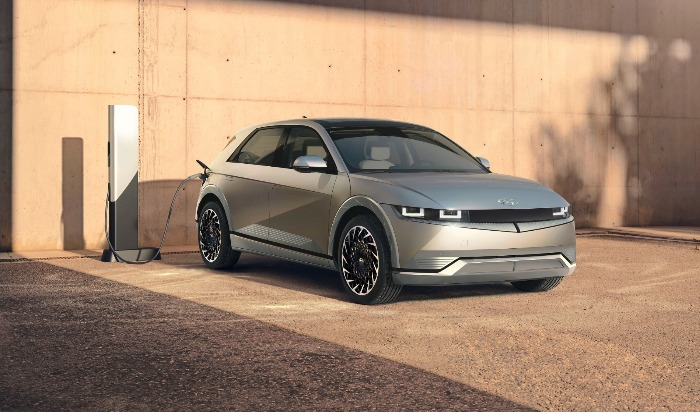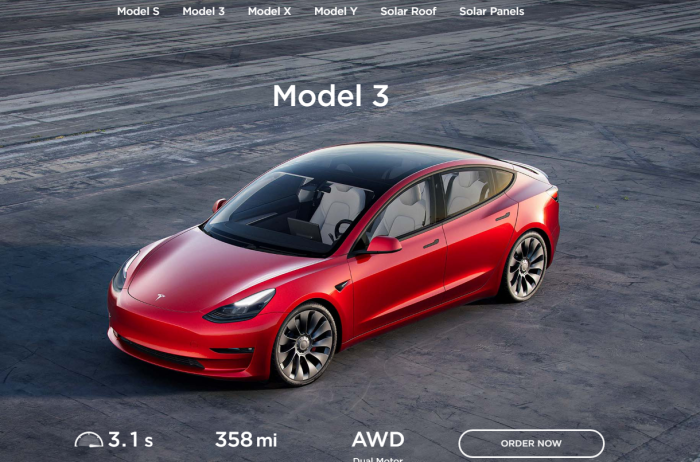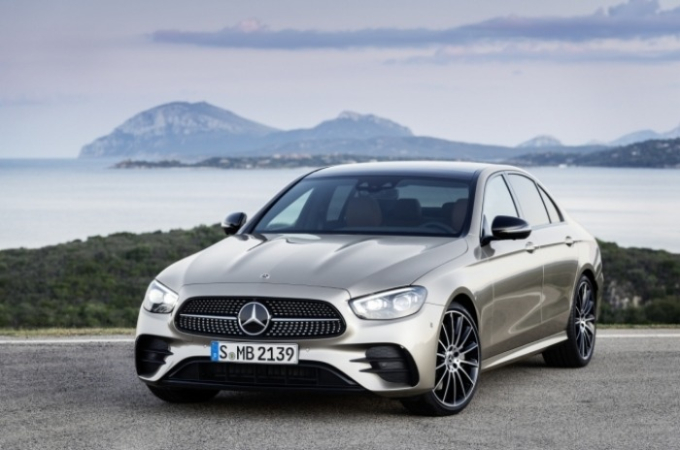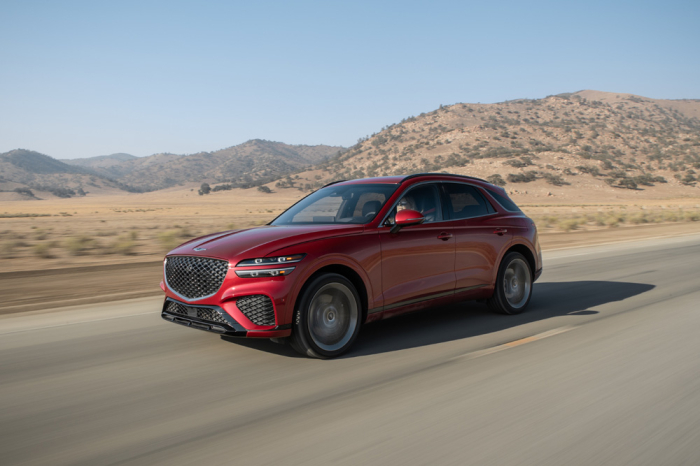Foreign carmakers hit by EV sales drop in S.Korea
S.Korean brands outperformed their foreign peers in the domestic automotive market in H1
By Jul 20, 2023 (Gmt+09:00)
Hankook Tire buys $1 bn Hanon Systems stake from Hahn & Co.


NPS to hike risky asset purchases under simplified allocation system


UAE to invest up to $1 bn in S.Korean ventures


Osstem to buy BrazilŌĆÖs No. 3 dental implant maker Implacil


US multifamily market challenges create investment opportunities



Foreign carmakers such as Mercedes-Benz and Tesla Inc. suffered a sales drop in South Korea in the first half of the year, as overall car sales jumped 10.7% from a year before, government data shows.
Hit by flagging EV sales, foreign makers took a smaller share of new car sales in Korea for the first time in four years, according to the Ministry of Land, Infrastructure and Transport and the Ministry of Trade, Industry and Energy on Thursday.
Sales of South Korean carmakersŌĆÖ EVs such as Hyundai Motor Co.'s IONIQ 5 and IONIQ 6, as well as Kia Corp.'s EV6 outmatched their foreign peers' in the first half of this year.
Overall, car sales in the country grew 10.7% on-year to 893,737 units in the first half. Meanwhile, sales of imported cars slid 3.1% to 134,414 units over the same period.
The share of foreign carmakers slid 2.5 percentage points to 15.3% in terms of newly registered cars during the first half.
Flagging interest in Tesla Inc.ŌĆÖs flagship Model 3 drove down its sales. Tesla's first-half car sales slumped 44.7% year-on-year.

Mercedes-Benz saw its sales decline on the back of a shipment delay and ahead of the launch of the E-Class facelift. The E-Class is Korea's most popular import car model. The German carmaker logged a 9.6% decline in Korean sales during the first half.
Foreign carmakersŌĆÖ lackluster performance stood out in the EV segment, which posted the biggest percentage growth among newly registered cars as of end-June, compared with other vehicle categories.
Imported EVs accounted for 19.5% of total EV sales as of end-June, down sharply from 35.9% in 2020.
South Korean carmakers swept the top seven most popular models of newly registered EVs in the first half of this year. Tesla's Model Y landed eighth.

┬Ā
The cumulative number of EVs registered in the country as of the end of June, climbed 19.3% compared with the end of 2022, to 465,000 units. It marked the biggest percentage leap in a half-year period compared with other vehicle segments.As for hybrids, a total of 1.34 million units have been cumulatively registered in South Korea, up 15.5% from the end of 2022.
By contrast, the cumulative number of LPG and diesel vehicles dipped by 2% and 1.3%, respectively, over the same period.
In South Korea, 25.8 million cars were registered as of end-June, a one-percent rise from the end of last year. That means that there's one car for every two people.

Domestic carmakers accounted for 84.7% of all cars registered as of end-June, versus 80.6% a half year earlier.
In the first half of 2023, 918,000 cars were newly registered. Passenger cars took up the lionŌĆÖs share at 85% of the total, followed by trucks, vans and special vehicles.
In terms of fuel, gas-powered cars took up half of newly registered vehicles in the first half; EVs accounted for 8.5%.
For all of 2023, imported car sales are forecast to decrease 9.7% on-year to 280,000 units, while sales of Korean vehicles are poised to rise 6.65% on-year to 1.46 million units, according to the Korea Automobile & Mobility Association.
Write to Il-Gue Kim at Black0419@hankyung.com
Yeonhee Kim edited this article
-
 Korean chipmakersSamsung to make TeslaŌĆÖs fifth-generation HW 5.0 auto chip
Korean chipmakersSamsung to make TeslaŌĆÖs fifth-generation HW 5.0 auto chipJul 18, 2023 (Gmt+09:00)
3 Min read -
 AutomobilesHyundai MotorŌĆÖs UK sales highest in 5 years, driven by IONIQ 5
AutomobilesHyundai MotorŌĆÖs UK sales highest in 5 years, driven by IONIQ 5Jul 14, 2023 (Gmt+09:00)
2 Min read -
 AutomobilesHyundai Motor premieres first high-performance EV IONIQ 5 N
AutomobilesHyundai Motor premieres first high-performance EV IONIQ 5 NJul 13, 2023 (Gmt+09:00)
3 Min read -

-
 AutomobilesGenesis rewrites Hyundai story, shedding Honda copycat image
AutomobilesGenesis rewrites Hyundai story, shedding Honda copycat imageJul 07, 2023 (Gmt+09:00)
2 Min read -
 AutomobilesEVs lack luster in S.KoreaŌĆÖs secondhand car market
AutomobilesEVs lack luster in S.KoreaŌĆÖs secondhand car marketJun 28, 2023 (Gmt+09:00)
2 Min read -
 AutomobilesHyundai to spend $18 bn on EVs; Kia breaks ground on first PBV plant
AutomobilesHyundai to spend $18 bn on EVs; Kia breaks ground on first PBV plantApr 11, 2023 (Gmt+09:00)
3 Min read -
 AutomobilesHyundai, Kia vow to crack Japan-dominated SE Asian market with EVs
AutomobilesHyundai, Kia vow to crack Japan-dominated SE Asian market with EVsJan 21, 2023 (Gmt+09:00)
4 Min read


